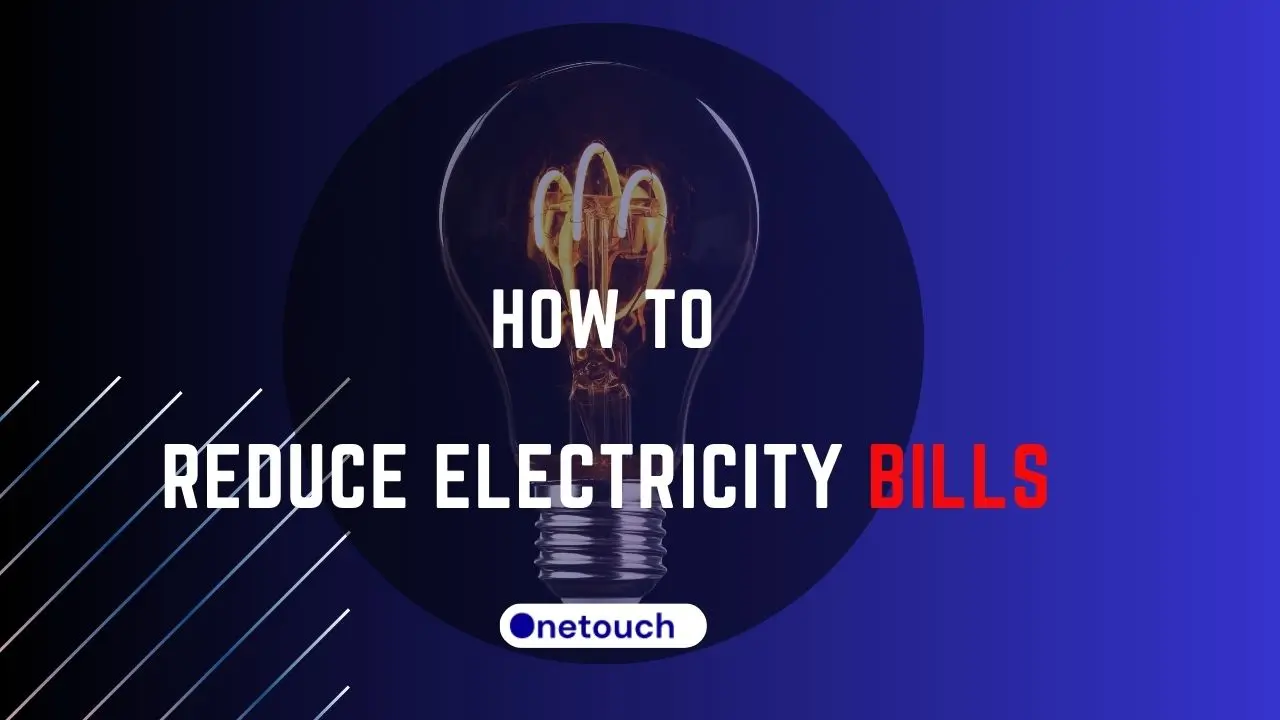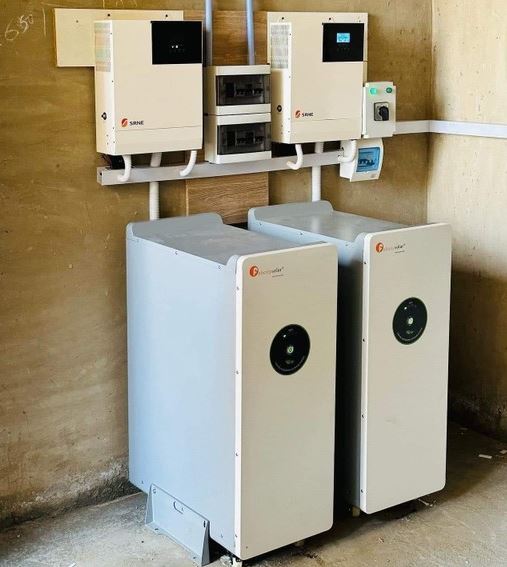Electricity is a vital utility that we all need in our daily lives. However, it can also be a significant expense, both financially and environmentally. Saving energy and reducing electricity bills can have many benefits, such as saving money, reducing our carbon footprint, and improving our health and well-being.
In Nigeria, where many people face challenges in accessing reliable and affordable electricity, it is even more crucial to learn and apply strategies to save energy and reduce electricity bills without compromising comfort and quality of life.
In this article, I will share with you five practical and effective tips on How to reduce electricity bill. By following these tips, you can save energy and money while also contributing to the development and sustainability of the electricity sector and the environment.
Let’s get started!
Effective Tips on How to Reduce Electricity Bill
If you’re looking to reduce your energy bill and save money while reducing your carbon footprint, follow the tips below:
Turn off the Lights and Appliances When Not in Use
One of the simplest and most effective ways to save energy and reduce your electricity bills is to turn off the lights and appliances when you are not using them. This may seem obvious, but many people need to remember or pay attention to this habit and end up wasting a lot of energy and money. According to the Energy Commission of Nigeria, lighting accounts for about 15% of the total electricity consumption in Nigeria, while appliances account for about 35%. Therefore, by turning off the lights and appliances when not in use, you can save up to 50% of your electricity consumption and bills.
However, more than turning off the lights and appliances is required. It would be best if you also unplugged them from the sockets because some appliances still consume energy even when they are switched off. This is known as standby power or vampire power, and it can account for up to 10% of your electricity bill. Some examples of appliances that consume standby power are:
- TVs, DVD players, video game consoles, and other entertainment devices
- Computers, laptops, printers, scanners, and other office devices
- Microwaves, electric kettles, toasters, and other kitchen devices
- Chargers, adapters, power banks, and other electronic devices
- Air conditioners, fans, heaters, and other cooling and heating devices
To avoid wasting energy and money on standby power, unplug these appliances from the sockets when you are not using them or use an extension. You can also use smart plugs that automatically turn off the appliances at a preset time or when the appliances are not in use.
Use Energy-Efficient Bulbs and Appliances
Another way to save energy and reduce your electricity bills is to use energy-efficient bulbs and appliances that consume less energy than conventional ones.
Use energy-efficient bulbs and appliances. Compared to conventional ones, energy-efficient bulbs and appliances consume up to 80% less energy, last longer, and perform better.
Always look for Energy Star-certified appliances. These appliances have met high standards of energy efficiency and performance. Energy Star-certified appliances use up to 50% less energy and water than conventional appliances while delivering the same or better functionality and quality.
Use Cooking Gas Instead of Electric Stoves
Cooking is one of the most common and essential activities we do every day, and it also consumes a lot of energy and money. According to the Energy Commission of Nigeria, cooking accounts for about 20% of the total electricity consumption in Nigeria. Therefore, by choosing a more energy-efficient and cost-effective way of cooking, you can save a lot of energy and money. One of the best ways to do this is to use cooking gas instead of electric stoves.
Cooking gas, also known as liquefied petroleum gas (LPG), is a clean and convenient fuel used for various cooking purposes, such as boiling, frying, baking, and roasting. Cooking gas can save energy and money compared to electric stoves. Cooking gas has higher efficiency than electric stoves, which means it can produce more heat and cook faster.
Use Solar Panels or Inverters as Alternative Sources of Electricity
Another way to save energy and reduce your electricity bills is to use solar panels or inverters as alternative sources of electricity for your home. Solar panels and inverters are devices that can convert solar energy or battery power into electricity that can be used for various purposes, such as lighting, cooling, heating, cooking, entertainment, communication, and more. Solar panels and inverters can provide reliable and renewable electricity for your home because:
- Solar panels and inverters can generate electricity from the sun or batteries, which are abundant and free energy sources.
- Solar panels and inverters can operate independently from the grid, avoiding power outages and voltage fluctuations.
- Solar panels and inverters can reduce your carbon footprint and greenhouse gas emissions, improving the environment and the climate.
Monitor and Manage Your Electricity Consumption and Bills
When you monitor and manage your electricity consumption and bills, you can understand how much energy and money you are using and spending and how you can improve your energy efficiency and cost-effectiveness. To read and understand your electricity bills and tariffs, you can use some of these tips:
- Know the different components and terms of your electricity bills and tariffs, such as the fixed charge, the energy charge, the meter service charge, the VAT, the tariff class, the tariff code, and the tariff rate.
- Know the different types and categories of electricity tariffs in Nigeria, such as the residential, commercial, industrial, and special tariffs, and the R1, R2, R3, R4, C1, C2, C3, and D1.
- Know the different factors and variables that affect your electricity consumption and bills, such as the number and type of appliances you use, the duration and frequency of use, the time and season of use, and the weather and temperature conditions.
- Check your electricity meter and bill regularly and carefully, and report any errors or issues to your electricity distribution company or service provider as soon as possible.
Final Words
In conclusion, saving energy and reducing your electricity bills are very important if you’re looking forward to saving money and reducing your carbon footprint. By following the five tips that I have shared with you in this article, you can save energy and money.
These tips are:
- Turn off the lights and appliances when not in use
- Use energy-efficient bulbs and appliances
- Use cooking gas instead of electric stoves
- Use solar panels or inverters as alternative sources of electricity
- Monitor and manage your electricity consumption and bills
Frequently Asked Questions:
How Much Can I Save On My Electricity Bill by Following These Tips?
The amount of money that you can save on your electricity bill by following these tips depends on various factors, such as your current electricity consumption and tariff, the type and number of bulbs and appliances that you use, the size and type of gas cylinder or solar panel that you choose, and the frequency and duration of your electricity usage. However, according to some estimates, you can save up to 50% or more on your electricity bill by following these tips.
What Gadget Cuts Electricity Bill?
Smart thermostats, LED bulbs, power strips (extension), energy monitors, and solar panels. These gadgets can help you control and reduce your electricity usage.
What Wastes the Most Electricity in a House?
The appliances and devices that waste the most electricity in a house are usually those that use a lot of energy, run for a long time, or stay on standby mode. Some common ones are water heaters, washers and dryers, ovens and stoves, refrigerators, and TVs. You can reduce electricity usage by using these appliances and devices more efficiently, such as turning them off when not in use.
Which Uses More Electricity, AC or Fan?
An air conditioner uses more electricity than a fan because it has to cool and dehumidify the air, which requires more energy than simply circulating the air. According to some estimates, an air conditioner can use up to 50 times more electricity than a fan, depending on the size, type, and efficiency of the units.
What Devices Use Electricity Even When Turned Off?
Some devices that use electricity even when turned off are TVs, computers, phones, microwaves, coffee makers, and cordless phones. You can save electricity by unplugging these devices when not in use or using power strips (extensions) to switch them off completely.




